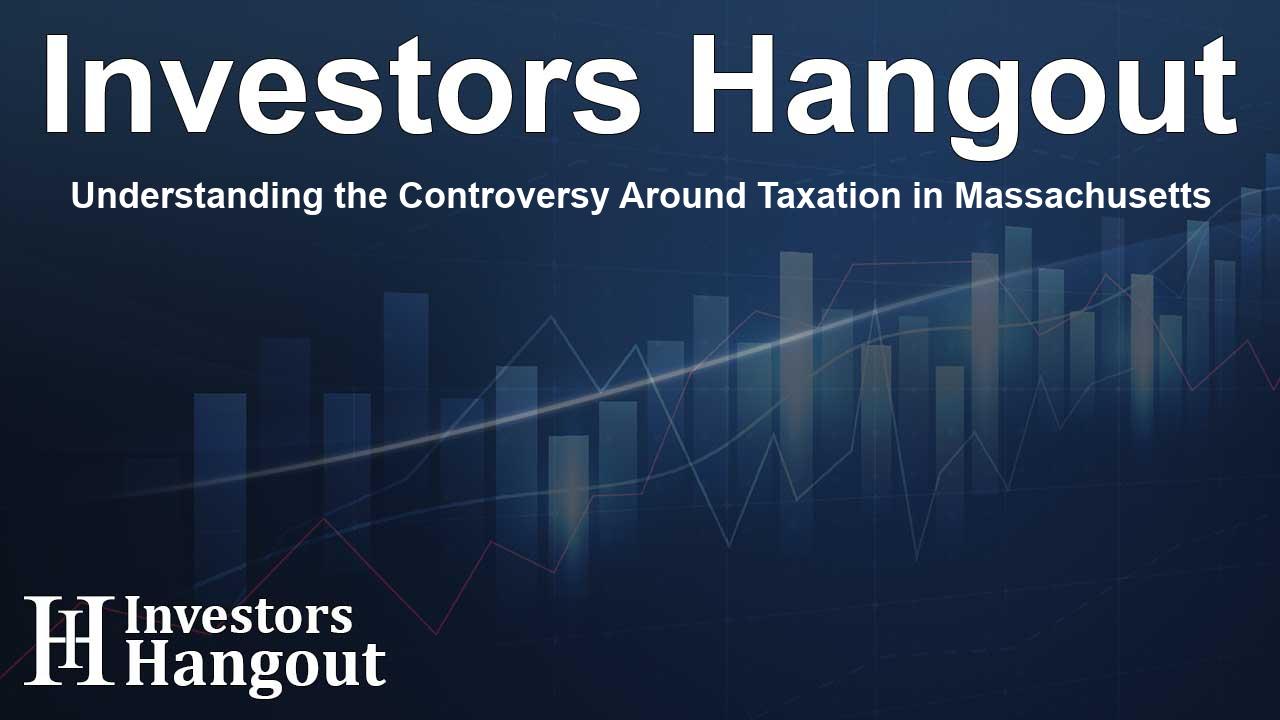Understanding the Controversy Around Taxation in Massachusetts

Understanding Massachusetts' 'Taxachusetts' Reputation
Massachusetts has earned the nickname 'Taxachusetts' for quite some time, primarily due to perceptions of high state taxes that date back to the 1970s. This label emerged as a reaction to what many residents viewed as excessive income, property, and sales taxes, leading to significant frustration among the populace. It has since become a central topic in political discussions, advocating for essential tax reforms and reductions.
Ongoing Tax Reforms and Their Economic Effects
Even with recent efforts to reform taxes, the term 'Taxachusetts' continues to resonate, reflecting the state's historically substantial tax burdens. Entrepreneur Kevin O'Leary recently shared his reasons for moving to Florida, emphasizing that the high cost of living in Boston, driven by steep taxes, made it unaffordable for him. O'Leary remarked, "I left Massachusetts, and I moved to Florida, and most of my neighbors are from Boston. We cannot afford to live there anymore." This perspective highlights a growing trend among high earners who are contemplating relocation to states with more favorable tax environments.
Belichick's Views on Taxation and Attracting Sports Talent
Bill Belichick, the legendary coach known for leading the New England Patriots to six Super Bowl victories, has voiced similar concerns about the tax situation in Massachusetts. He pointed out that the state's tax policies could make it challenging for local teams to draw in top sports talent. In an interview on his show, Belichick explained, "It’s just another challenge in negotiations compared to states without income tax. Agents leverage these taxes in player negotiations, making it tougher for teams to compete." This underscores how tax implications extend beyond individual finances, affecting the competitive dynamics of local sports franchises.
The Millionaire Tax and Its Implications
In 2023, Massachusetts implemented a 4% surtax on taxable income that exceeds $1 million, commonly known as the millionaire tax. This initiative aims to boost state revenue, with an expected contribution of around $2.2 billion in fiscal 2024 from wealthier individuals, including CEOs and professional athletes. Such measures have ignited intense discussions about the consequences of high taxes, particularly as Massachusetts has one of the highest property tax rates in the country.
Challenges in Recruiting for Local Teams
Belichick's insights reflect growing worries among local sports organizations about the difficulties in recruiting talent due to stringent tax regulations. He pointed out that virtually every player, regardless of their role on a team, faces potential tax burdens, which significantly impacts recruitment strategies.
Wider Economic Changes and Migration Patterns
Economists believe that the millionaire tax could prompt high earners to reconsider their residency in Massachusetts, potentially leading to substantial effects on the state's economy. Recently, Steve Pagliuca, co-owner of the Boston Celtics, moved to Florida. While he claims that his decision wasn't solely based on taxation, he acknowledges that harsh tax policies complicate recruitment efforts for the state's sports teams.
Future Consequences of Tax Policy
Experts suggest that high earners might change their financial behaviors in response to the millionaire tax, considering relocation or adopting more strategic financial practices to lessen their tax burdens. A study conducted by Boston University warns that Massachusetts could lose up to $1 billion in tax revenue by 2030 if current trends continue, raising concerns that the state's tax policies could lead to increased migration rates among affluent residents.
Frequently Asked Questions
Why is Massachusetts called 'Taxachusetts'?
The nickname originated in the 1970s, reflecting a widespread perception of high taxes, including income and property taxes, which many residents found excessive.
What impact does the millionaire tax have on sports teams?
The millionaire tax may discourage top talent from considering teams in Massachusetts due to higher income tax burdens compared to states without such taxes.
How are high earners responding to Massachusetts tax policies?
Many high earners are contemplating relocation to states with lower tax burdens, as indicated by the migration of prominent figures like Kevin O'Leary and Steve Pagliuca.
What are the potential economic consequences of these tax policies?
Experts predict that Massachusetts could see a significant decline in tax revenue if current migration trends continue, potentially losing $1 billion by 2030.
How does the millionaire tax affect average residents?
While it primarily impacts high earners, the resulting economic changes may ultimately influence the overall state economy, including job opportunities and state services funded by taxes.
About The Author
Contact Riley Hayes privately here. Or send an email with ATTN: Riley Hayes as the subject to contact@investorshangout.com.
About Investors Hangout
Investors Hangout is a leading online stock forum for financial discussion and learning, offering a wide range of free tools and resources. It draws in traders of all levels, who exchange market knowledge, investigate trading tactics, and keep an eye on industry developments in real time. Featuring financial articles, stock message boards, quotes, charts, company profiles, and live news updates. Through cooperative learning and a wealth of informational resources, it helps users from novices creating their first portfolios to experts honing their techniques. Join Investors Hangout today: https://investorshangout.com/
The content of this article is based on factual, publicly available information and does not represent legal, financial, or investment advice. Investors Hangout does not offer financial advice, and the author is not a licensed financial advisor. Consult a qualified advisor before making any financial or investment decisions based on this article. This article should not be considered advice to purchase, sell, or hold any securities or other investments. If any of the material provided here is inaccurate, please contact us for corrections.
